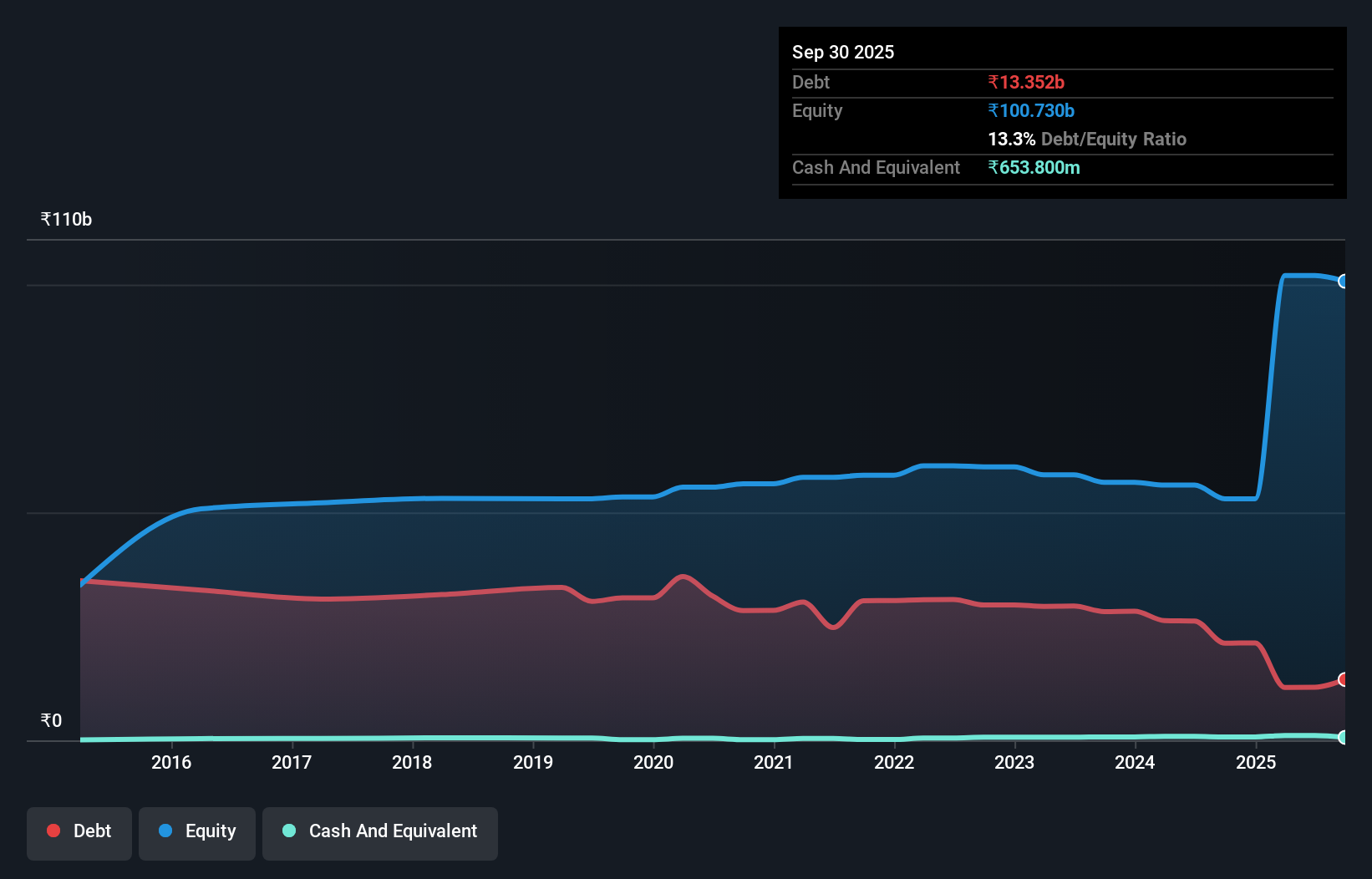Howard Marks put it nicely when he said that, rather than worrying about share price volatility, 'The possibility of permanent loss is the risk I worry about... and every practical investor I know worries about.' So it seems the smart money knows that debt - which is usually involved in bankruptcies - is a very important factor, when you assess how risky a company is. We can see that The India Cements Limited (NSE:INDIACEM) does use debt in its business. But should shareholders be worried about its use of debt?
When Is Debt A Problem?
Debt is a tool to help businesses grow, but if a business is incapable of paying off its lenders, then it exists at their mercy. Ultimately, if the company can't fulfill its legal obligations to repay debt, shareholders could walk away with nothing. However, a more common (but still painful) scenario is that it has to raise new equity capital at a low price, thus permanently diluting shareholders. Of course, the upside of debt is that it often represents cheap capital, especially when it replaces dilution in a company with the ability to reinvest at high rates of return. The first thing to do when considering how much debt a business uses is to look at its cash and debt together.
How Much Debt Does India Cements Carry?
You can click the graphic below for the historical numbers, but it shows that India Cements had ₹13.4b of debt in September 2025, down from ₹21.3b, one year before. However, it does have ₹653.8m in cash offsetting this, leading to net debt of about ₹12.7b.

How Strong Is India Cements' Balance Sheet?
According to the last reported balance sheet, India Cements had liabilities of ₹17.4b due within 12 months, and liabilities of ₹18.5b due beyond 12 months. On the other hand, it had cash of ₹653.8m and ₹4.62b worth of receivables due within a year. So it has liabilities totalling ₹30.6b more than its cash and near-term receivables, combined.
While this might seem like a lot, it is not so bad since India Cements has a market capitalization of ₹123.0b, and so it could probably strengthen its balance sheet by raising capital if it needed to. But it's clear that we should definitely closely examine whether it can manage its debt without dilution. When analysing debt levels, the balance sheet is the obvious place to start. But it is future earnings, more than anything, that will determine India Cements's ability to maintain a healthy balance sheet going forward. So if you want to see what the professionals think, you might find this free report on analyst profit forecasts to be interesting.
Check out our latest analysis for India Cements
Over 12 months, India Cements made a loss at the EBIT level, and saw its revenue drop to ₹42b, which is a fall of 5.0%. We would much prefer see growth.
Caveat Emptor
Importantly, India Cements had an earnings before interest and tax (EBIT) loss over the last year. Indeed, it lost ₹2.7b at the EBIT level. Considering that alongside the liabilities mentioned above does not give us much confidence that company should be using so much debt. So we think its balance sheet is a little strained, though not beyond repair. However, it doesn't help that it burned through ₹2.6b of cash over the last year. So suffice it to say we do consider the stock to be risky. The balance sheet is clearly the area to focus on when you are analysing debt. However, not all investment risk resides within the balance sheet - far from it. For example, we've discovered 1 warning sign for India Cements that you should be aware of before investing here.
When all is said and done, sometimes its easier to focus on companies that don't even need debt. Readers can access a list of growth stocks with zero net debt 100% free, right now.
New: AI Stock Screener & Alerts
Our new AI Stock Screener scans the market every day to uncover opportunities.
• Dividend Powerhouses (3%+ Yield)
• Undervalued Small Caps with Insider Buying
• High growth Tech and AI Companies
Or build your own from over 50 metrics.
Have feedback on this article? Concerned about the content? Get in touch with us directly. Alternatively, email editorial-team (at) simplywallst.com.
This article by Simply Wall St is general in nature. We provide commentary based on historical data and analyst forecasts only using an unbiased methodology and our articles are not intended to be financial advice. It does not constitute a recommendation to buy or sell any stock, and does not take account of your objectives, or your financial situation. We aim to bring you long-term focused analysis driven by fundamental data. Note that our analysis may not factor in the latest price-sensitive company announcements or qualitative material. Simply Wall St has no position in any stocks mentioned.
About NSEI:INDIACEM
India Cements
Manufactures and sells cement and cement related products in India.
Moderate growth potential with mediocre balance sheet.
Similar Companies
Market Insights
Community Narratives



